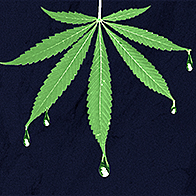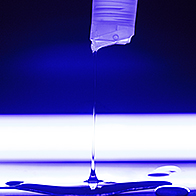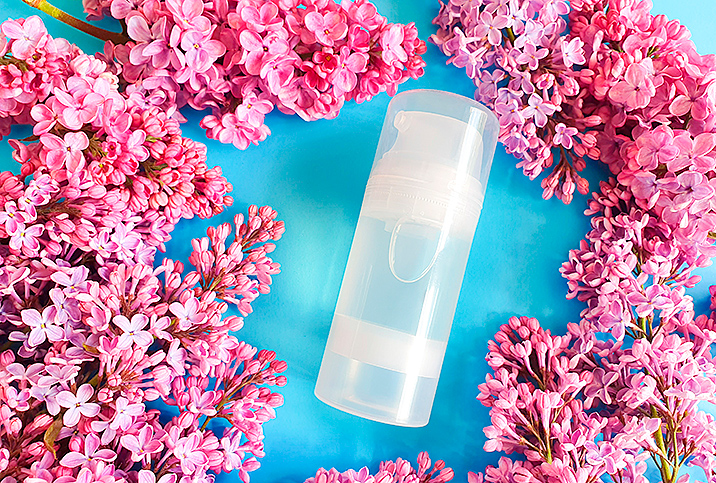Lubricant and Your Penis Can Be Best Friends

Water-based. Oil-based. Silicone-based. Hybrid.
When perusing a sex shop with so many lubricant choices, it can be difficult to choose the right type for you and your penis. While lubes are generally safe to use and make sex feel better, some men may experience irritation from penis lube.
Lubricants are more likely to irritate a vagina than a penis, according to Reid Mihalko, a sex educator and the CEO and founder of reidaboutsex.com. For instance, the lube could potentially throw off the pH balance of the vagina, which could lead to irritation and infection.
"Generally speaking, penises are a lot more resilient," Mihalko said. "The ecosystem of a penis is less sensitive than that of a vagina. Unless you have an allergy to the actual ingredient in the lube, I don't hear often about penis owners running into some sort of allergy problems."
Men having allergic reactions to lube is relatively rare but could happen, said Ashley Manta, a California-based sex and relationship coach and founder of CannaSexual, a site that promotes combining sex with cannabis. If you know you have a specific allergy, read the label and make sure that particular allergen is not present in the lube.
"The penis is pretty hardy, all things considered," Manta said. "Sometimes, for sensitizing lubes, they'll put [in] menthol or peppermint and things like that, which some people really don't like the sensation of."
'Generally speaking, penises are a lot more resilient. The ecosystem of a penis is less sensitive than that of a vagina.'
Manta recommends watching out for lubes with capsaicin, the component in chile peppers that makes them spicy.
"Why anyone thinks that's a good idea to put that in lube is beyond me," she said.
Bad choices for penile lubricants
Some men reach for household products to use as a lubricant during masturbation. For example, Mihalko has heard of men using motor oil, which is not advisable. It's important to be careful with household products because they may not be safe for the body, he said.
"You might be OK masturbating with something, but you don't necessarily want motor oil in your urethra and you don't want to put motor oil inside a vagina or an ass," Milhako said.
When in the shower, some men masturbate with shampoo or hair conditioner.
"Generally speaking, it works, but if you get soap in your urethra, it burns when you pee," he said. "It would be better to keep a bottle of lube in your shower."
"There is nothing worse than chafing," Manta said in regard to masturbation. "I've seen this happen out in the world, going to play parties or with partners. They come over and their penises are actually chapped because they're jerking off in the shower with soap."
Types of lubes
The four main types of lubes are water-, silicone- and oil-based, and hybrid, which is usually a mix of water-based and silicone.
Water-based lubes are the most common and typically the least expensive. They also last the shortest amount of time.
"Not all water-based lubes are created equal, and odds are if you're buying it at a drugstore, it probably sucks," Manta said. "Get it from a sex shop. They have a gazillion of them online."
Manta recommends silicone lube, which is hypoallergenic and lasts longer than water-based lube.
"Silicone is largely inert, so you're not going to have issues with rashes and things like that," she said.
However, some companies add ingredients, such as vitamin E oil, to their silicone lube. Some people are allergic to vitamin E, and it also reduces the shelf life of the lube.
If you use silicone toys on yourself or your partner, you want to avoid using silicone lube because it can degrade the integrity of the toy.
"General rule of thumb is to always use water-based lube when you're using toys to play with," Mihalko said. "Water-based lubes aren't going to screw up your silicone or nonsilicone toys."
Oil-based lubes—petroleum jelly and coconut oil are two examples—can degrade the integrity of a latex condom and cause it to break. If you use an oil lube, you want to use nonlatex condoms, such as nitrile or polyurethane, Manta said, adding that hybrid lubricant makes a nice middle-ground choice.
"If you want it to last a little bit longer than water-based, but either you're using toys or you want more of a thick and creamy consistency—that's the other thing with silicone, it's quite thin—you might want to do a hybrid lube," she said.
Other possible penis irritations
In addition to potential irritations and allergic reactions from the ingredients in lube, irritation could result if you don't use enough lube or it dries out. Of course, lube is intended to reduce friction, but with a water-based lube, for example, when the water evaporates, the lube becomes less slippery.
Mihalko said if you use a water-based lube when masturbating, the friction increases, and irritation may result. The irritation isn't being caused by the lube, but rather because the lube is losing its slipperiness.
But for many men, it's not likely that worn-off lube will cause irritation to the penis.
"It would just start to become apparent that you're not wearing lube anymore," Manta said. "You would just need to re-up, which is fine; there's no shame in needing more lube during sex. In fact, I would encourage couples, especially, to stop, have a drink of water, re-up on the lube and continue with their experience rather than try to get it all in in one shot."




















